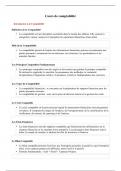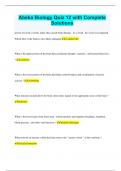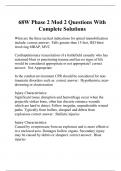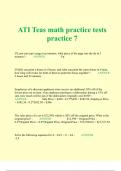WEBCASTS EUROPEAN UNION LAW
Inhoud
Webcasts European Union Law.................................................................................................................................1
Basic Notions I.......................................................................................................................................................1
Basic notions II.......................................................................................................................................................3
Prohibition of Cartels............................................................................................................................................4
Abuse of dominant position................................................................................................................................14
Webcast on the Free Movement of Goods (Fiscal Barriers)..............................................................................17
State Aid – art. 107 TFEU.....................................................................................................................................19
Enforcement against the States – art. 108 TFEU................................................................................................24
What is the internal market?..............................................................................................................................25
Free movement of goods....................................................................................................................................28
Justifications free movement of goods...............................................................................................................36
outbound of free movement of goods – export art. 35 TFEU............................................................................38
Free movement of Union citizens – art 21 TFEU.....................................................................................................41
Status of Union Citizenship.................................................................................................................................41
Free movement of Union citizens.......................................................................................................................43
Citizenship Rights Directive 2004/38/EC (CRD)...................................................................................................48
Free movement of workers, Article 45 e.f. TFEU................................................................................................49
the freedom of establishment – art. 49 TFEU.........................................................................................................52
the freedom of establishment of legal persons – why does it matter? What is a legal person and who
determines it?.....................................................................................................................................................53
the freedom of legal persons to move within the EU internal market...............................................................57
The freedom of establishment of natural persons.............................................................................................65
Freedom to provide services – art. 56 TFEU...........................................................................................................70
Notion of Services and relationship with other freedoms..................................................................................70
personal and material scope...............................................................................................................................73
justification, proportionality and service directive.............................................................................................76
Free movement of capital – art. 63 TFEU...............................................................................................................78
the free movement of capital. Economic significance, definition of capital and payments & distinction from
other freedoms...................................................................................................................................................78
the free movement of capital. Personal and material scope, excemptions and justifications..........................81
BASIC NOTIONS I
There are multiple principles
, - Discrimination: this is a more specific version of the principle of unequal
treatment. This is an unequal treatment of comparable situations for a specific
reason. In other words: two situations that are comparable to each other, must
be treated equally. If this does not happen and there is an unequal treatment for
a specific reason, this reason is explicitly forbidden by law.
Example: there is an Italian law that forbids the sale of Dutch pasta. Only Italian
Pasta is allowed. This rule treats two products (Dutch and Italian pasta)
differently. Yet, the pasta is not so different that they can also be treated
differently. In the end you can put both into boiling water and in the end, you can
eat the pasta dish. The only element that distinguishes them, is the origin. You
can have many discussions about whether these are two same of different pastas.
Here, the prohibition of discrimination and the principle of equal
treatment comes into place. With a prohibition, there is legislation: “this pasta
is forbidden by this and this legislation …”. If the only difference is the origin and
given that the origin as a criterion is forbidden by law, a different treatment will
lead up to discrimination. In EU law, there are very many grounds on which
discrimination is forbidden: nationality, origin, sex, racial, ethnical, believe or
sexual orientation etc.
- Direct discrimination: this is the case when you can identify the ground on
which the discrimination is based by simply reading the wording of measure
under scrutiny1. In case of a prohibition of discrimination on grounds of origin,
we would find the very origin of a product back in the wording of the measure
that we look at. In the pasta example, if the Italian law forbids the Dutch pasta,
simply because its Dutch we speak of a direct discrimination. This is the toughest
form and it can barely be found
- Indirect discrimination: if the measure we are looking at does not literally
use the origin in its wording (for example ‘Dutch’). The measure is this
indistinctly applicable. So, at first sight, it does not distinguish according to the
origin of a product. Yet, the observed application of the matter in real life has
eventually the same effect as the measure required to make a distinction based
on the origin of a product. Pasta Example: the Italian legislation does not forbid
the sale of Dutch pasta but only allows the sale of pasta made from a special type
of wheat. This sounds like a reasonable rule, distinguishing between different
types of wheat instead of origin. This changes however when you find out that
only Italian pasta can be made from this special wheat. The application of this
rule now has the effect that Dutch pasta cannot be sold in Italy and only the
Italian can. The wording of this rule is thus not discriminatory, but the
effect of this rule causes the discrimination.
- Objective differentiation: two situations that are treated differently remain
different even if we exclude all forbidden grounds as possible elements that can
define these situations as being different. Hence, the different treatment of these
situations is fine because the situations are different. In other words, although 2
products have a different origin, they also differ in a way that is totally unrelated
to the origin. Pasta example: the sale of both Dutch and Italian pasta is allowed.
However, the sale of Italian pasta is much cheaper because the producers get tax
benefits due to their exclusive use of special wheat. The exporters of Dutch pasta
do not have such tax benefits, now they are made of regular wheat. This might
look like indirect discrimination, but now the Italian government explains the
discrimination as a logical link to the more difficult circumstances under which
the special wheat is produced as compared to common wheat. The special wheat
only grows under special weather conditions. Therefore, there is another reason
to distinct between the pastas: the growing conditions and costs related to it
Italian and Dutch pasta are different products!
- Non- discriminatory restriction: when a measure does not treat two
comparable situations differently; neither in wording nor indirectly by affecting
one situation less favourable than the other one. Yet, the application of the
measure makes the exercise of one of the EU cross boarder freedoms less
attractive. Pasta example: let us say that in Italy in contrary to the Netherlands,
1
Nauwkeurig onderzoek/ toezicht houden
, shops are closed on Sundays. This means that Dutch pastas cannot be sold on
Sunday in Italy, even though it can be sold on Sunday in Holland. This lack of sale
opportunity might make it less attractive to sell their pasta in Italy. The rule
that shops are closed in Italy on Sunday does not care that the origin of a
product is Italian or Dutch (neither directly nor indirectly).
They have one thing in common: they are measures that violate EU internal market law.
The prohibition of discrimination only works for the origin or nationality of a
product/person. If the rule doesn’t (in)directly discriminate on those fields, it is allowed.
BASIC NOTIONS II
The second part of basic notions consists of exception, exemption, justification, explicit
justification grounds, mandatory requirements, and proportionality. These notions have
in common that they define the remaining way for member states when the measures
violate the internal EU market. In order to understand exception and justification we
must have a closer look at proportionality.
- Proportionality: something must be proportionate in relation to something else.
It therefor describes a relationship between two items. One is the measure under
scrutiny and the other item is the benchmark against which the proportionality of
the measure is tested. This benchmark is EU law, a fundamental freedom or a
prohibition of discriminations.
Example: Lara is a Dutch law student at EUR, she graduates cum laude. She
moves to Berlin and want to be a lawyer there. When she tries to register with
her Dutch bar registration her request is rejected because she has no German
law degree. This violates Lara’s freedom to work in Germany. Proportionality in
this example inquires whether the refused request of Lara – on the ground that
she doesn’t hold a German law degree – is proportionate with the view of Lara
free movement right. More precisely the proportionality test looks into whether
there are no other possibilities to realize the objective that the measure under
review pursuits that restricted EU movement rights lesser than this measure. If
yes, the measure under review is disproportionate, if no the measure to review is
proportionate. Giving this meaning of proportionality we apply a three-step-test
in order to check a measure:
1. Is the measure suitable to achieve the objective it invokes?
2. Is the measure necessary to attain this objective? (are there no less restrictive
but as affective means available)
3. Does even the least restrictive measure not excessively interfere with the EU
free movements rights?
If the answer to only one of these questions is no, the measure is disproportionate.
Proportionality test to example:
1. The objective to have a German law degree is to protect a consumer. The answer is
yes because it ensures that there won’t be any German lawyers that have no
knowledge of German law.
2. This is doubtful because you can have knowledge about the German law but you
gained that knowledge in a different way. It also ignores the fact that you studied at
a foreign university for EU law. So it requires an individual check of the equivalence
of the German law knowledge. So they should have tested Lara knowledge before
rejecting her request.
3. The German system does not provide for individual checks it is therefore going
beyond what is necessary to protect German consumers.
The proportionality test is to find shades of grey between the interest of a barrierless
free movement ride in the EU law and the autonomy of a member state. This requires an
individual check by every case. There is always the possibility that the
proportionality-check concludes that the measure is disproportionate. It matters
therefore whether or not a measure is subject to a proportionality check. That is
, where the distinction between exception on the one hand and justification on the other
comes into play.
- Exception means that whatever falls under it is located outside the scope of EU
law. In other words, a measure that is covered by an exception can under no
circumstances violate EU internal market law because it is outside the reach of
this law. Because it cannot violate the EU internal market law there is no need to
do a proportionality test. Example: if Lara would not want to become a German
lawyer but a German judge. The German law now requires that you must hold a
certain law degree in order to become a judge. There is only a small difference
between the initial case and this variation: the access to a job in the public
service. Art. 45 (4) TFEU: the EU free movement rules shall not apply to
employment in the public service. This is an exception and therefore the
limitations for the judge disposition are not subject to the proportionality test. EU
law leaves the measure unaffected.
- Close to the exception is the notion of exemption. You will find this very often
in EU competition law. Exemption means that if exempted, measure is no
violation of EU internal market law.
- In contrast to an exception, we speak of a justification whenever there is a
violation of EU law and where the state is allowed to put forward good reasons
for its cause of action. If permitted for justification, a measure must meet the
requirements of the proportionality test. When is a measure that violates EU
internal market law permitted to be justified? That depends on whether the
measure can rely on:
1. Explicit justification grounds: this is easy to notice because treaty will
provide explicitly – in its own article or paragraph - the possibility justify. This
possibility is limited to the grounds mentioned in the treaties. But sometimes
this is not enough. For example: Article 36 TFEU speaks of a lot of reasons
but does not speak of consumer protection as a reason a Member State could
evoke to justify a violation of free movements of goods. Does that mean that a
member state cannot justify a measure? No, because the Court of Justice
introduced the mandatory requirements.
2. Mandatory requirements: these are unwritten justification grounds that a
member state can also rely on under special conditions. They are developed in
the case law of the Court of Justice. But how do we identify the justification
grounds? That is the objective pursued by the measure under scrutiny. Only
after the objective is declared admissible for justification by EU law we can
continue with the proportionality test.
PROHIBITION OF CARTELS
EU competition law is a necessary pilar on which the internal market law lays. This is
because fundamental freedoms prevent Member States from setting up barriers that
prevent the creation of an internal market in which it is not supposed to mean anything
whether you produce your product in Rotterdam, in Paris, in Berlin etc. So therefore,
barriers between Member States should be abolished. But: when Member States stop
creating such barriers, private parties can still do so. This is what competition law looks
like! It is highly important that this is done at an EU level because Member States lose
their authority about companies if they can actually freely move around in the internal
market. Example: if the competition authority of Ireland wants to enforce competition
law against a company, this Irish company can also simply say to its government: then I
am just going to leave Ireland and move to Denmark because their competition authority
is much nicer to us. They can force Ireland to either change their behavior towards them
or leave the country. These arguments can no longer be used if competition law is
enforced at EU-level because then the only choice the companies have is to move
Inhoud
Webcasts European Union Law.................................................................................................................................1
Basic Notions I.......................................................................................................................................................1
Basic notions II.......................................................................................................................................................3
Prohibition of Cartels............................................................................................................................................4
Abuse of dominant position................................................................................................................................14
Webcast on the Free Movement of Goods (Fiscal Barriers)..............................................................................17
State Aid – art. 107 TFEU.....................................................................................................................................19
Enforcement against the States – art. 108 TFEU................................................................................................24
What is the internal market?..............................................................................................................................25
Free movement of goods....................................................................................................................................28
Justifications free movement of goods...............................................................................................................36
outbound of free movement of goods – export art. 35 TFEU............................................................................38
Free movement of Union citizens – art 21 TFEU.....................................................................................................41
Status of Union Citizenship.................................................................................................................................41
Free movement of Union citizens.......................................................................................................................43
Citizenship Rights Directive 2004/38/EC (CRD)...................................................................................................48
Free movement of workers, Article 45 e.f. TFEU................................................................................................49
the freedom of establishment – art. 49 TFEU.........................................................................................................52
the freedom of establishment of legal persons – why does it matter? What is a legal person and who
determines it?.....................................................................................................................................................53
the freedom of legal persons to move within the EU internal market...............................................................57
The freedom of establishment of natural persons.............................................................................................65
Freedom to provide services – art. 56 TFEU...........................................................................................................70
Notion of Services and relationship with other freedoms..................................................................................70
personal and material scope...............................................................................................................................73
justification, proportionality and service directive.............................................................................................76
Free movement of capital – art. 63 TFEU...............................................................................................................78
the free movement of capital. Economic significance, definition of capital and payments & distinction from
other freedoms...................................................................................................................................................78
the free movement of capital. Personal and material scope, excemptions and justifications..........................81
BASIC NOTIONS I
There are multiple principles
, - Discrimination: this is a more specific version of the principle of unequal
treatment. This is an unequal treatment of comparable situations for a specific
reason. In other words: two situations that are comparable to each other, must
be treated equally. If this does not happen and there is an unequal treatment for
a specific reason, this reason is explicitly forbidden by law.
Example: there is an Italian law that forbids the sale of Dutch pasta. Only Italian
Pasta is allowed. This rule treats two products (Dutch and Italian pasta)
differently. Yet, the pasta is not so different that they can also be treated
differently. In the end you can put both into boiling water and in the end, you can
eat the pasta dish. The only element that distinguishes them, is the origin. You
can have many discussions about whether these are two same of different pastas.
Here, the prohibition of discrimination and the principle of equal
treatment comes into place. With a prohibition, there is legislation: “this pasta
is forbidden by this and this legislation …”. If the only difference is the origin and
given that the origin as a criterion is forbidden by law, a different treatment will
lead up to discrimination. In EU law, there are very many grounds on which
discrimination is forbidden: nationality, origin, sex, racial, ethnical, believe or
sexual orientation etc.
- Direct discrimination: this is the case when you can identify the ground on
which the discrimination is based by simply reading the wording of measure
under scrutiny1. In case of a prohibition of discrimination on grounds of origin,
we would find the very origin of a product back in the wording of the measure
that we look at. In the pasta example, if the Italian law forbids the Dutch pasta,
simply because its Dutch we speak of a direct discrimination. This is the toughest
form and it can barely be found
- Indirect discrimination: if the measure we are looking at does not literally
use the origin in its wording (for example ‘Dutch’). The measure is this
indistinctly applicable. So, at first sight, it does not distinguish according to the
origin of a product. Yet, the observed application of the matter in real life has
eventually the same effect as the measure required to make a distinction based
on the origin of a product. Pasta Example: the Italian legislation does not forbid
the sale of Dutch pasta but only allows the sale of pasta made from a special type
of wheat. This sounds like a reasonable rule, distinguishing between different
types of wheat instead of origin. This changes however when you find out that
only Italian pasta can be made from this special wheat. The application of this
rule now has the effect that Dutch pasta cannot be sold in Italy and only the
Italian can. The wording of this rule is thus not discriminatory, but the
effect of this rule causes the discrimination.
- Objective differentiation: two situations that are treated differently remain
different even if we exclude all forbidden grounds as possible elements that can
define these situations as being different. Hence, the different treatment of these
situations is fine because the situations are different. In other words, although 2
products have a different origin, they also differ in a way that is totally unrelated
to the origin. Pasta example: the sale of both Dutch and Italian pasta is allowed.
However, the sale of Italian pasta is much cheaper because the producers get tax
benefits due to their exclusive use of special wheat. The exporters of Dutch pasta
do not have such tax benefits, now they are made of regular wheat. This might
look like indirect discrimination, but now the Italian government explains the
discrimination as a logical link to the more difficult circumstances under which
the special wheat is produced as compared to common wheat. The special wheat
only grows under special weather conditions. Therefore, there is another reason
to distinct between the pastas: the growing conditions and costs related to it
Italian and Dutch pasta are different products!
- Non- discriminatory restriction: when a measure does not treat two
comparable situations differently; neither in wording nor indirectly by affecting
one situation less favourable than the other one. Yet, the application of the
measure makes the exercise of one of the EU cross boarder freedoms less
attractive. Pasta example: let us say that in Italy in contrary to the Netherlands,
1
Nauwkeurig onderzoek/ toezicht houden
, shops are closed on Sundays. This means that Dutch pastas cannot be sold on
Sunday in Italy, even though it can be sold on Sunday in Holland. This lack of sale
opportunity might make it less attractive to sell their pasta in Italy. The rule
that shops are closed in Italy on Sunday does not care that the origin of a
product is Italian or Dutch (neither directly nor indirectly).
They have one thing in common: they are measures that violate EU internal market law.
The prohibition of discrimination only works for the origin or nationality of a
product/person. If the rule doesn’t (in)directly discriminate on those fields, it is allowed.
BASIC NOTIONS II
The second part of basic notions consists of exception, exemption, justification, explicit
justification grounds, mandatory requirements, and proportionality. These notions have
in common that they define the remaining way for member states when the measures
violate the internal EU market. In order to understand exception and justification we
must have a closer look at proportionality.
- Proportionality: something must be proportionate in relation to something else.
It therefor describes a relationship between two items. One is the measure under
scrutiny and the other item is the benchmark against which the proportionality of
the measure is tested. This benchmark is EU law, a fundamental freedom or a
prohibition of discriminations.
Example: Lara is a Dutch law student at EUR, she graduates cum laude. She
moves to Berlin and want to be a lawyer there. When she tries to register with
her Dutch bar registration her request is rejected because she has no German
law degree. This violates Lara’s freedom to work in Germany. Proportionality in
this example inquires whether the refused request of Lara – on the ground that
she doesn’t hold a German law degree – is proportionate with the view of Lara
free movement right. More precisely the proportionality test looks into whether
there are no other possibilities to realize the objective that the measure under
review pursuits that restricted EU movement rights lesser than this measure. If
yes, the measure under review is disproportionate, if no the measure to review is
proportionate. Giving this meaning of proportionality we apply a three-step-test
in order to check a measure:
1. Is the measure suitable to achieve the objective it invokes?
2. Is the measure necessary to attain this objective? (are there no less restrictive
but as affective means available)
3. Does even the least restrictive measure not excessively interfere with the EU
free movements rights?
If the answer to only one of these questions is no, the measure is disproportionate.
Proportionality test to example:
1. The objective to have a German law degree is to protect a consumer. The answer is
yes because it ensures that there won’t be any German lawyers that have no
knowledge of German law.
2. This is doubtful because you can have knowledge about the German law but you
gained that knowledge in a different way. It also ignores the fact that you studied at
a foreign university for EU law. So it requires an individual check of the equivalence
of the German law knowledge. So they should have tested Lara knowledge before
rejecting her request.
3. The German system does not provide for individual checks it is therefore going
beyond what is necessary to protect German consumers.
The proportionality test is to find shades of grey between the interest of a barrierless
free movement ride in the EU law and the autonomy of a member state. This requires an
individual check by every case. There is always the possibility that the
proportionality-check concludes that the measure is disproportionate. It matters
therefore whether or not a measure is subject to a proportionality check. That is
, where the distinction between exception on the one hand and justification on the other
comes into play.
- Exception means that whatever falls under it is located outside the scope of EU
law. In other words, a measure that is covered by an exception can under no
circumstances violate EU internal market law because it is outside the reach of
this law. Because it cannot violate the EU internal market law there is no need to
do a proportionality test. Example: if Lara would not want to become a German
lawyer but a German judge. The German law now requires that you must hold a
certain law degree in order to become a judge. There is only a small difference
between the initial case and this variation: the access to a job in the public
service. Art. 45 (4) TFEU: the EU free movement rules shall not apply to
employment in the public service. This is an exception and therefore the
limitations for the judge disposition are not subject to the proportionality test. EU
law leaves the measure unaffected.
- Close to the exception is the notion of exemption. You will find this very often
in EU competition law. Exemption means that if exempted, measure is no
violation of EU internal market law.
- In contrast to an exception, we speak of a justification whenever there is a
violation of EU law and where the state is allowed to put forward good reasons
for its cause of action. If permitted for justification, a measure must meet the
requirements of the proportionality test. When is a measure that violates EU
internal market law permitted to be justified? That depends on whether the
measure can rely on:
1. Explicit justification grounds: this is easy to notice because treaty will
provide explicitly – in its own article or paragraph - the possibility justify. This
possibility is limited to the grounds mentioned in the treaties. But sometimes
this is not enough. For example: Article 36 TFEU speaks of a lot of reasons
but does not speak of consumer protection as a reason a Member State could
evoke to justify a violation of free movements of goods. Does that mean that a
member state cannot justify a measure? No, because the Court of Justice
introduced the mandatory requirements.
2. Mandatory requirements: these are unwritten justification grounds that a
member state can also rely on under special conditions. They are developed in
the case law of the Court of Justice. But how do we identify the justification
grounds? That is the objective pursued by the measure under scrutiny. Only
after the objective is declared admissible for justification by EU law we can
continue with the proportionality test.
PROHIBITION OF CARTELS
EU competition law is a necessary pilar on which the internal market law lays. This is
because fundamental freedoms prevent Member States from setting up barriers that
prevent the creation of an internal market in which it is not supposed to mean anything
whether you produce your product in Rotterdam, in Paris, in Berlin etc. So therefore,
barriers between Member States should be abolished. But: when Member States stop
creating such barriers, private parties can still do so. This is what competition law looks
like! It is highly important that this is done at an EU level because Member States lose
their authority about companies if they can actually freely move around in the internal
market. Example: if the competition authority of Ireland wants to enforce competition
law against a company, this Irish company can also simply say to its government: then I
am just going to leave Ireland and move to Denmark because their competition authority
is much nicer to us. They can force Ireland to either change their behavior towards them
or leave the country. These arguments can no longer be used if competition law is
enforced at EU-level because then the only choice the companies have is to move











